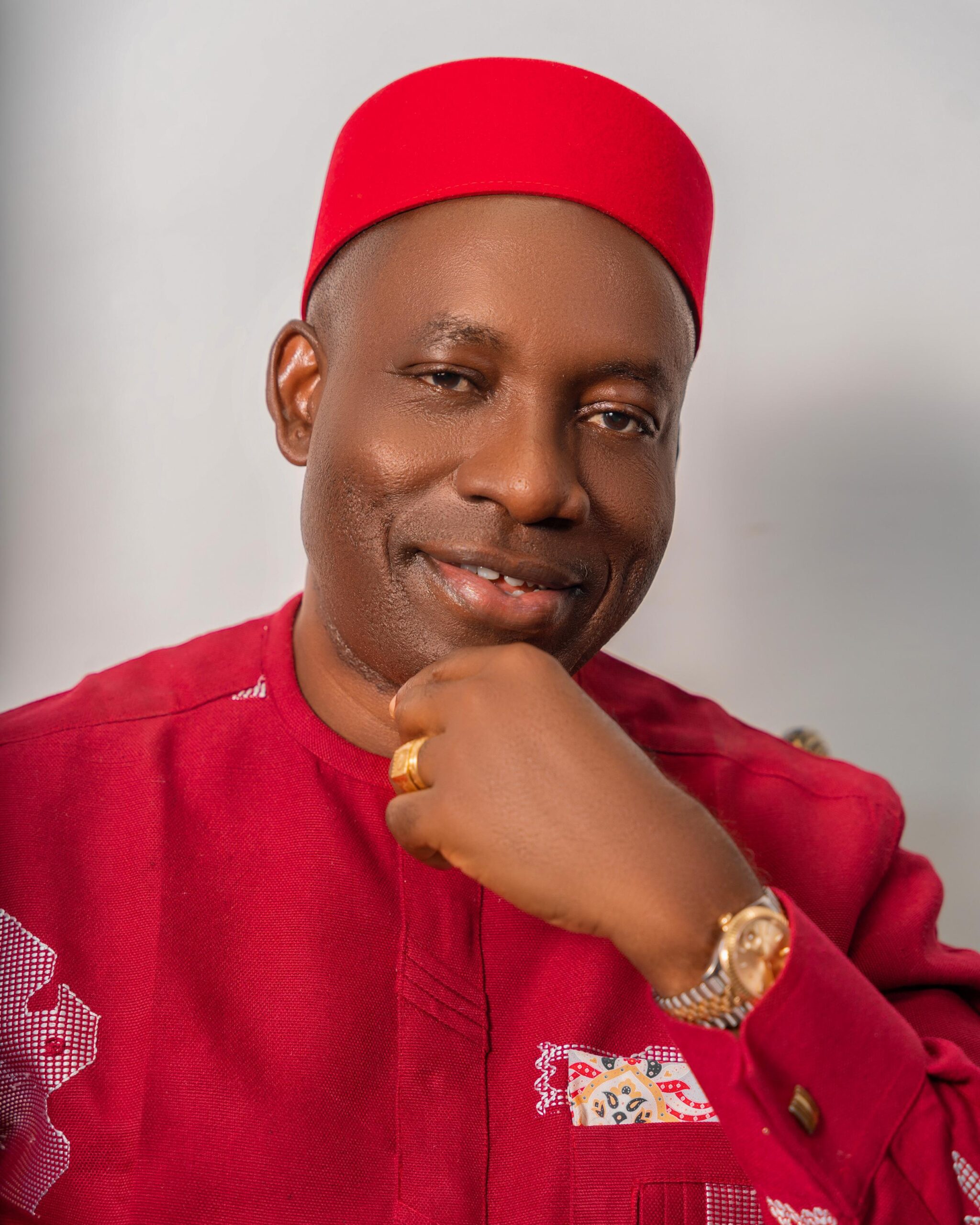News
NITEC, Digitization & ‘Servants of The People’

Shortly after he assumed office as the Minister of Communications, Barrister Adeabyo Shittu, shared the deep sense of urgency the Federal Government feels for implementation e-Government Master Plan by 2020, which is a key blueprint for improving the delivery of public sector services using technology.
The e-Government Master Plan developed by the Federal Ministry of Communications is such a compendium of an essential blueprint of modalities and protocols for the adoption of e-Government best practices, across the Federal Civil Service.
Under the plan, all Federal Government Ministries, Departments and Agencies (MDAs) are embracing the e-Government Plan, the Minister said.
“I must, most earnestly, share with you the deep sense of urgency that I, and the entire Ministry of Communications, feel as per the importance of the e-Government Master Plan 2020”, Shittu told attendees at the Stakeholders Engagement Workshop on e-Government Master Plan 2020.
Yes, such transformation drive will engender an information-rich government while invoking new contractor agreement between the Government and the citizens on clear principles for further digitization of government, in particular for Services provided to citizens and businesses.
The immediate gains we expect are such as compulsory adoption of e-invoicing for government departments, e-procurement, and social rights and tariffs will be granted automatically. At that point social justice would have returned and government would have curried public flavor too. We are all witnesses how TSA is delivering the country from the shackles of graft, corruption and perpetual embezzlements in the past
Therefore and with the topic as “what the digitalization of government and public sectors means for the eco-system”, NITEC 2016 shares the Minister’s position because the government and its agencies have come under intense scrutiny and are realizing that technology is helping citizens hold them more accountable.
What will be the new economy that will be created as a result of digitalizing only 30% of Nigeria’s public sector?
According to KPMG documentation on the subject, it was pointed out that the digital transformation of government is not only a great challenge but also a great opportunity for taking a great leap forward. The expectation in this era signifies “The government has to provide the same or even better services to citizens and businesses, but with less resources. As a result, the focus has been put on administrative simplification, more efficient procedures, and combating fraud. The ‘Only Once’ principle offers the government the possibility of achieving those objectives’ (KPMG).
The document also described the ‘Servant of the People’ principle as the power of integrity in politics and government.
In Nigeria, we have heard of public office holders referring themselves to ‘Chief Servant’ or what have you, but this is basically who holds’ position, paid or unpaid, in the public sector’. Technology of this nature aids office holders to be more responsive, proactive and interactive; serving the purpose of their ‘calling’, and they must handle this power with integrity.
But how can they do this? Muel Kaptein, Partner at KPMG Advisory NV and professor in business ethics and integrity management at the RSM Erasmus University in Rotterdam, is the author of “The Servant of the People: the power of integrity in politics and government” in which he offers insight and practical assistance for officials in the public sector. The central message is that there is great power in integrity for servants of the people which is primarily guaranteed by transparent nature of technology.
NITEC is such a platform that will aptly provide the needed e-governance latitude with key deliverables of improving public sector delivery of the dividends of good governance to the people of Nigeria through the using of new information and communication technologies (ICTs).
For instance, stakeholders ought to be on same page on how to tackle the complicities in .ng domain registration by States and local government. Or how can one describe the low acceptance of the Nigeria’s internet domain name, .ng largely due to nonchalant of the authorities on policy formation. With the population of Nigeria within the range of 170m, with less than 100,000 domains registration in NiRA’s database.
It was found that digital transformations require changes, to both processes and IT systems that are more challenging to implement in the public sector than in the private sector. Thus, a joint study by McKinsey and Oxford University found that public-sector IT projects requiring business change were six times more likely to experience cost overruns and 20 percent more likely to run over schedule than such projects in the private sector.
Regardless of where a public-sector organization is in its digitization journey, there are impeccable reasons to start, scale, or evaluate its programs. Tentatively, giving in e-governance rings a win for government-wide and agency-deep commitment to specific digital targets; establish government-wide coordination of IT investments; leading to redesign processes with the end user in mind; hire and nurture the right talent; use big data and analytics to improve decision making, and protect critical infrastructure and confidential data.
These will eliminate what Chris Uwaje, the doyen of Software in Nigeria calls, “Match-Box Vision”, following incoherent manner of policy formulation and implementation.
The relevance of discussions slated for NITEC 2016 cannot be overemphasized, especially the nation’s economy is in tatters due to over dependent on oil. Oil can drive, but innovations driven by technology evolve daily.
Holding at Civic Centre, Lagos from 23rd-24th of June, NITEC 2016 remains a formidable to bridge the gap between the private and public sectors and the international technology community in re-engineering the African technological ecosystem for greater impact on the continent’s GDP.
Likewise, through plenary sessions and exhibitions the worth of our technology system will be showcased to thousands of attendees; exhibition booth (2 days); placement of brand logo on event brochure and website; complimentary wifi, place web banners and share branded gifts at booths.
The renowned speakers will spark deepened conversation and help through up new innovations that will help Nigeria and indeed, Africa, on digitization. Be there!
News
PalmPay Launches CSR Initiatives to Empower Women, Foster Financial Literacy in Northern Nigeria

In a strategic move to expand financial inclusion in Nigeria, leading mobile banking platform, PalmPay has launched a series of CSR programs across Kano and Kaduna. The CSR initiative named “Passing the Baton” represents the brand’s commitment to passing on knowledge and providing the resources individuals and businesses need to achieve financial independence and drive economic empowerment.

This initiative is a bold move by PalmPay to bridge the opportunity gap in the North by providing financial literacy training and micro-business branding support to 5,000 women-owned businesses in Kano and Kaduna. This strategic initiative reaffirms PalmPay’s commitment to inclusive development and economic empowerment, particularly in underserved regions.
“At PalmPay, we believe that real financial inclusion must be far reaching and cover the grassroots,” said Chika Nwosu, Managing Director of PalmPay. “Our new CSR program is focused on supporting gender equity by equipping women with the knowledge, tools, and visibility they need to thrive as entrepreneurs in their communities.”
Through this initiative, beneficiaries will receive free health insurance, hands-on training workshops, enhanced store branding to boost visibility, and branded merchandise to strengthen their business presence.
The initiative is part of PalmPay’s broader strategy to extend its innovative solutions, expand its footprint in Northern Nigeria, while building sustainable partnerships with local stakeholders for long-term impact.
In a show of support, His Royal Highness, the Emir of Kano, Dr. Muhammadu Sanusi II, has endorsed the initiative, calling on other stakeholders to join forces with PalmPay in ensuring the North benefits fully from the growing digital economy. PalmPay has received commendation from community stakeholders, as the initiative aims to serve as a model for similar projects across other northern states.
As PalmPay continues to scale across Nigeria, the company remains committed to bridging the financial inclusion gap and empowering underserved groups, particularly women and youth, through its innovative solutions and impact initiatives.
News
EFCC Witness Admits Writing Off Arik Air’s $2.3M Debt Amid N76Bn Fraud Trial


News
Anambra Shines in 2025 E-Governance Rankings, Setting National Standards

Anambra State has once again demonstrated its leadership in digital transformation, emerging as one of Nigeria’s top three states in the 2025 e-Governance Report published by the Panorama CIAPS Governance Performance Index (CGPI).

According to the report — a collaborative effort between Nigerian Panorama and the Commonwealth Institute of Advanced Professional Studies (CIAPS) — Anambra ranks alongside Lagos and Enugu as the leading states in adopting and implementing e-governance practices that foster accountability, transparency, and improved service delivery.
In his remarks, Professor Anthony Kila, Director of CIAPS, emphasized the importance of e-governance in shaping how governments interact with citizens. “The centrality of e-governance allows us to assess the performance of state governments in the country. How the government treats the digital world says a lot about them,” he said.
The report evaluated states based on a comprehensive set of criteria, including website security, up-to-date content, public engagement, availability of online services, policy updates, and user accessibility. Anambra’s performance reflects the state’s deliberate investment in digital infrastructure and its commitment to leveraging technology as a tool for inclusive governance.
Reacting to the recognition, the Managing Director/CEO of the Anambra State ICT Agency, Chukwuemeka Fred Agbata, CFA, described the report as a welcome validation of the efforts being made under the leadership of Prof. Charles Chukwuma Soludo, CFR, to reposition Anambra as a liveable and prosperous smart mega-city.
“This is not just about being tech-savvy,” Agbata said. “It’s about using digital tools to create real impact — making the government more accessible, responsive, and transparent. Anambra is building a digital future that works for everyone.”
The CGPI Report recommended that all states intensify efforts to train public servants, maintain digital platforms effectively, and build user-friendly systems that keep citizens informed and empowered. For Anambra, this recognition serves both as a milestone and a motivation to scale new heights.
As the journey continues, Anambra remains focused on setting the pace for e-governance in Nigeria in line with the Governor’s mantra of Everything Technology & Technology Everywhere.

 E-Financial3 days ago
E-Financial3 days agoFidelity Bank Plc Wins 2025 DBN Innovation Award for MSME Support

 E-Business3 days ago
E-Business3 days agoNigeria Among Hotspots as Kaspersky Warns of Rising Ransomware Threat in Africa

 Telecom2 days ago
Telecom2 days agoMTN Nigeria Invests ₦900Bn in 2025 to Boost Network Quality in Lagos & Abuja

 E-Business3 days ago
E-Business3 days agoNDPC Probes Suspected Data Breach in Examination Centres

 Telecom3 days ago
Telecom3 days agoVitel Wireless Completes Interconnectivity with all Major Telcos in Nigeria

 Telecom3 days ago
Telecom3 days agoMTN inducted into Brand Africa Hall of Fame

 Telecom3 days ago
Telecom3 days agoeBusiness Life Girls In ICT: Stakeholders Call For More Action On Girls Participation In ICT

 Telecom3 days ago
Telecom3 days agoLayer3 Wins Big at African Beacon of ICT Awards 2025
















